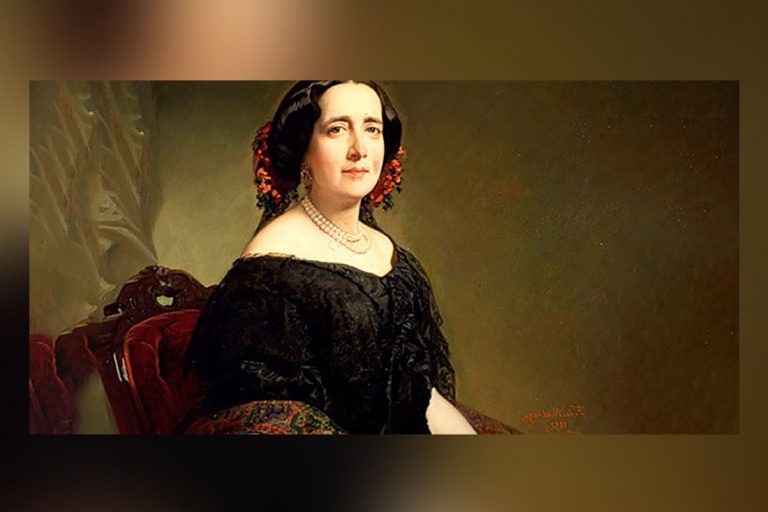Under the pseudonym of La Peregrina, she is known as one of the most important writers of Puerto Príncipe, a representative of the Cuban romantic movement and a forerunner of anti-slavery novels.
Gertrudis Gómez de Avellaneda would be one of the great defenders of the social role of women. Trait of her work that was reflected with dignity during her time as director and principal editor of Album Cubano de lo Bueno y lo Bello, a literary magazine that defends feminine ideas and strongly supports the journalistic work carried out by women.
The society
From her homeland there were several recognitions of her career, the Philharmonic Society of Puerto Príncipe starred one of the most important. Chaired by Salvador Cisneros Betancourt, Marquis of Santa Lucía, the most progressive elements of the territory met there and during its life. In addition to the regulation dances, classes and conferences of the most varied subjects, concerts, theatrical performances were offered and they came to have one of the most notable libraries in the city.
There, in addition, the flame of independence was incubated, hence the Society soon gained the aversion of the colonial authorities and that many of its most notable members soon joined the insurrection in 1868.
On January 1st, 1860, Gertrudis Gómez de Avellaneda was unanimously named a Merit Member of the Philharmonic Society of Puerto Principe. Honor who was informed by means of a letter emphasizing the pleasure that this society would have in seeing her one day in its bosom. She accepted the invitation, the author of Baltasar, and on May 10th she arrived in the city to, transgressing social conventions, stay at the house of her half-sister, also called Gertrudis Gómez de Avellaneda, in order to share.
The tribute
The Philharmonic decided to obtain a portrait of her and on June 3rd scheduled the tribute that would take place in the palace of the Marquis of Santa Lucía, on Mayor and San Diego streets, currently Cisneros on the corner of Martí; building that no longer exists and whose space is now occupied by the Provincial Library. Escorted by a group of ladies, Avellaneda arrived at the Society, where 12 gentlemen were waiting for her. Once in the theater, arranged on the first floor of the house, the honoree was presented with a wreath of white flowers with the diploma that accredited her as a Merit Member.
Among the invited artists was Amalia Simoni, who had to interpret with her soprano voice the role of Elvira in the third act of Verdi’s opera Hernani. During the ceremony she enjoyed the music of Rossini and other authors. There were several speeches and the inevitable reading of poems, among them those of Antonio Napoles and Fajardo, Cucalambé’s brother, who signed with the pseudonym Sanlope. While that of the slave poet Juan Antonio Frías must have been read by a member of the Philharmonic because the presence of blacks was not allowed there.
The long program seemed to tire Ms. Gertrudis, after highlighting her love for the land where she was born and evoking the memory of her mother, she asked to return to the house where she was staying. The anticipated departure of Avellaneda must have caused disappointment between the public and the organizers of the tribute.
On June 9th, 1860, Avellaneda left Puerto Principe never to return. Her presence stimulated local literary life and made women with a literary vocation better esteemed, to whom she dedicated words of encouragement. For her native land, it will always be one of the great historical glories that makes every Camagüey proud.
Bibliography
González, Natalia (año) ” Revisando a Gertrudis Gómez de Avellaneda desde la historia de mujeres. Editorial Universidad Autónoma de Madrid. España.
Translated by: Aileen Álvarez García






